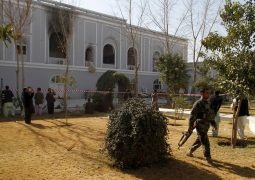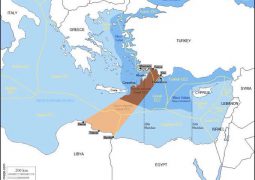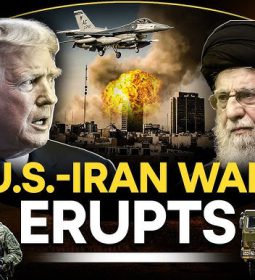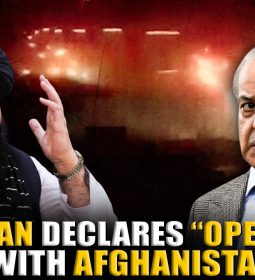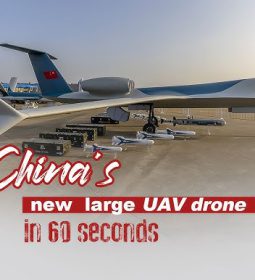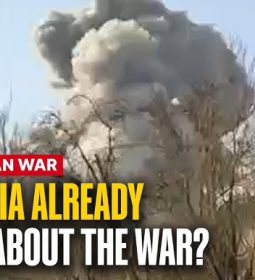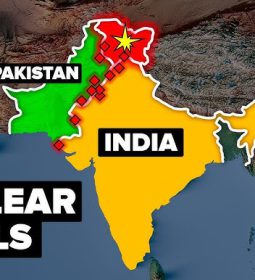US strike on Iran would be disastrous for the region — and likely for the US
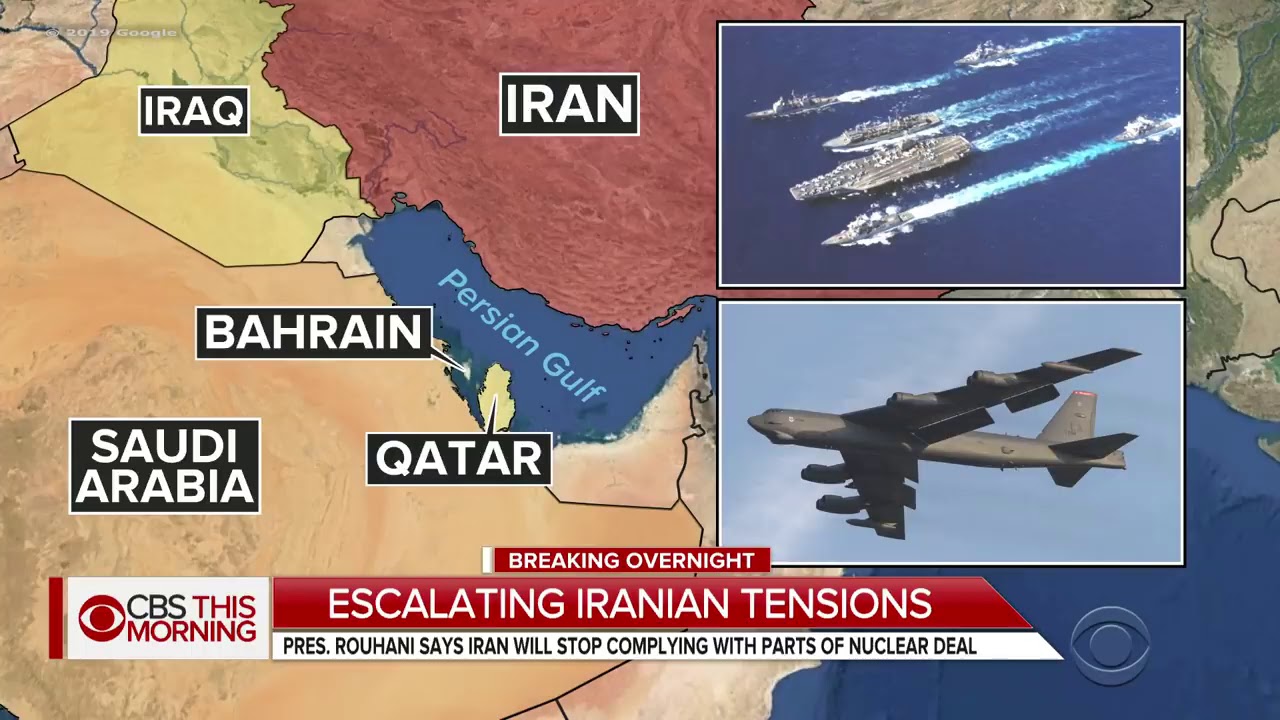
U.S. Air Force/Master Sgt. Ralph Hallmon/AP
- The US is claiming that the Islamic Republic of Iran is responsible for attacks on Saudi state-owned oil giant Saudia Aramco ahead of its IPO. Houthi rebels supported by Iran in Yemen’s civil war claimed responsibility for the attack.
- The Saturday attack on the Aramco facility showed widespread damage by as many as 17 strikes, which affected the production of roughly 5% of the world’s oil supply.
- In June, the US accused that Iran for a series of tanker bombings, which could be a justification for retaliation strikes. That month, Iran also shot down a US RQ-4A Global Hawk drone, a move that nearly triggered a retaliation — President Trump only called off the strike last minute.
- Some experts say that a military strike would not only set off other conflicts in the region, but work against the US’s interests. Iran is involved in multiple regional conflicts, which could ignite in the event of a US strike.
- “What could start as a limited tit-for-tat has the potential of quickly turning into a regional conflagration,” an expert told Insider.
Attacks on a major Saudi Arabian oil plant may drive the US and Iran closer to open war, after the US blamed the Islamic Republic for attacks Saturday on Saudi Aramco’s facilities.
The attacks were claimed by Houthi rebels in Yemen, who are backed by Iran against the Saudi-backed remnants of the Yemeni government in that country’s devastating civil war.
US Secretary of State Mike Pompeo disputed the Houthi’s claim on Twitter, blaming Iran instead.
“Amid all the calls for de-escalation, Iran has now launched an unprecedented attack on the world’s energy supply,”. “There is no evidence the attacks came from Yemen.”
“The United States will work with our partners and allies to ensure that energy markets remain well supplied and Iran is held accountable for its aggression,”/
Pompeo did not present evidence for his assessment of the attacks. But whatever their provenance, the attacks seem to be giving US officials ammunition for conflict with Iran, after a summer of escalating tensions.
On June 17, the Pentagon announced that 1,000 more troops would be headed to the Middle East after two tankers were attacked by Iran, according to Secretary of State Mike Pompeo, in the Gulf of Oman early in the morning of June 13. In May the US sent fighter jets, surface-to-air missiles, the USS Abraham Lincoln carrier strike group, and other assets to the region as a show of force to Iran.
The US is building a case of Iranian guilt for the Saudi Aramco strikes, just as it did for June’s tanker bombings, which could be a justification for retaliation strikes. But some experts say that a military strike would not only set off other conflicts in the region, but work against the US’s interests.
Ali Vaez, the Director of the Iran Project at Crisis Group, told Insider the most likely scenario is, “a strike against one or several [Islamic] Revolutionary Guard Corps facilities, maybe even some of Iran’s nuclear installations,” pointing out that the latter would be risky, given that there are UN inspectors in Iranian nuclear facilities “all of the time.” But the IRGC — an elite, paramilitary branch which the US sees as responsible for attacks at the Port of Fujairah in May, as well as June’s attacks — is the assumed target for limited strikes.
Alternately, the US could order a “massive aerial bombardment” against Iran’s air defense systems and nuclear infrastructure.
But none of these options, said Vaez, is ideal; “The best course of action, of course, is not to stumble into a conflict,” which he said the US is doing right now as a result of its Iran foreign policy — or lack thereof.
Although the US would see a limited strike as a warning — “a bloody nose operation,” according to Vaez — Iran would almost certainly retaliate.
Their response would almost certainly include using its proxies — Houthi rebels in Yemen, Hezbollah in southern Lebanon, and militia groups in Syria and Iraq — to attack US forces or allies in the region.
Hezbollah Fighter Lebanon
REUTERS/Ali Hashisho
“Lebanese Hezbollah is likely to fire hundreds of thousands of rockets and missiles into Israel, Israel is likely to retaliate against southern Lebanon, and maybe even Syria,” Vaez said, also pointing out that proxies in Iraq could attack US assets there, and that Houthi rebels could disrupt shipping in the Red Sea, or even launch an invasion into southern Saudi Arabia.
“So what could start as a limited tit-for-tat has the potential of quickly turning into a regional conflagration,” Vaez said.
Apart from the effect Iranian retaliation to a US strike would have in the region, it’s worth noting that Iran is willing to endure significant losses during conflict.
“Anyone who has studied the military history of the Islamic Republic knows that it has displayed an unusually high level of cost tolerance, with respect to military operations,” said Caitlin Talmadge of Georgetown University’s Walsh School of Foreign Service, meaning that Iran is willing to sacrifice more than expected to stay in the game. To illustrate this, Talmadge pointed to the Iran-Iraq war in the 1980s.
So what would be the US’s best strategy, given its current position? Not to have gotten in the position in the first place, of course. “I think the whole situation that we’re seeing right now is largely one of the US’s own making,” Talmadge said. The US decision to leave the Joint Comprehensive Plan of Action (JCPOA, or the Iran Nuclear Deal) set off the current chain of events, she said; if President Donald Trump were to propose an alternative to the JCPOA, the situation might be quite different.
“There’s a bigger strategic picture here in which the United States has undone an agreement that its own State Department certified as actually working very well.”
Failing that, said Vaez, Trump needs to realize that his “maximum pressure” doctrine is no longer effective. “At this stage, it’s best for the US to try to cash in on the leverage that it has created through sanctions to provide Iranians with a face-saving way out of this dilemma.”
In order to negotiate with Iran, said Vaez, the US needs to give up on the idea of regime change there, and make the first concession to Iran.
“You will not be able to successfully negotiate with the Iranians while holding a gun to their head.”
- Previous Blasphemy accusation in Pakistan sparks ransacking of Hindu temple, school
- Next Afghan, U.S. forces kill Taliban governors, fighters




